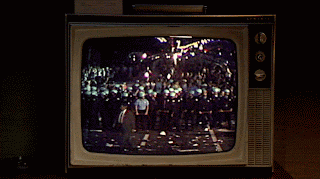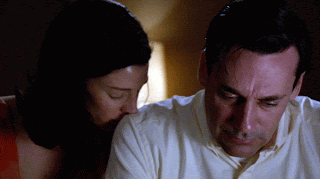Mad World on Kritik: Mad Men Season 6.13
"The Only Unpardonable Sin"
Guest Writer: Lauren Goodlad
Monday, June 24, 2013
posted under
Charles Dickens
,
Dante
,
Fredric Jameson
,
George Eliot
,
Lauren Goodlad
,
Mad Men
,
Mad World
,
Season 6
,
Todd Gitlin
by Unit for Criticism

"The Only Unpardonable Sin"
Written by: Lauren Goodlad English/Unit for Criticism)
The literal referent of “In Care Of” is a letter received from the District Attorney of the County of New York addressed to Miss Sally Beth Draper, “c/o Mr. Donald F. Draper.” But in a more a figurative sense, the motif of care—and of care of another—runs throughout this final episode of Mad Men’s Season 6. As the season concludes, the only care Pete exhibits for his mother’s passing is his getting his fair share of her furniture, having determined that an all-expense paid private eye to “bring [his] mother’s killer to justice” was not worth the cost. (This and the black comedy in which the scene between Pete and the SS Sunset Princess was played, left us little time to contemplate the apparent treachery of Manny—a/k/a “Marcus Constantine”—who seduces Pete’s mother while she is in his care, marries her for the money he believes she has, and then throws her over the side of a ship into shark-infested waters.)
Read more




















































